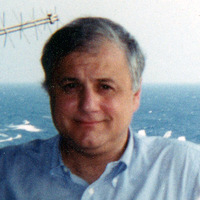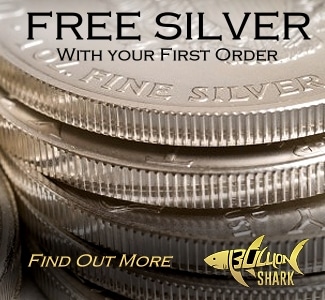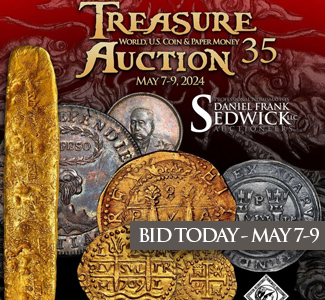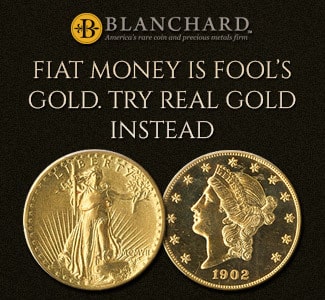CoinWeek Podcast #148: How to Become a Professional Classical Numismatist
Mobile phone users. Stream this podcast for free by downloading the podomatic app or subscribe to the CoinWeek Podcast on iTunes.
In this week’s episode of the CoinWeek Podcast, CoinWeek’s very own ancient coin expert Mike Markowitz talks about what it takes to become a professional classical numismatist. How do you start? Where should you go? What should you study? What languages should you learn? (Spoiler alert: Latin might be one of them.)
Mike passes on some advice he’s received from numerous dealers, numismatists, publishers, collectors, and experts from around the world about just what a person needs to know and what someone should expect trying to start out in the industry.
He also gives an overview of the market for ancient coins, what kinds of jobs exist, and also what kind of jobs adjacent to the field might help you gain entry or participate in other ways.
It’s not an easy business. But if you’re passionate about ancient coins, then it can be a rewarding one – and Mike tells you how next, on the CoinWeek Podcast.
* * *
The CoinWeek Podcast is brought to you by PCGS. PCGS has set a high bar for securing your great coins and paper money collectibles by announcing that all PCGS coin and banknote holders henceforward will be fitted for free with new NFC Anti-counterfeiting technology.
The threat of buying deceptive counterfeits is real and with this new technology, you will have peace of mind whenever you buy a PCGS-graded coin or banknote.
To learn how to take advantage of these exclusive offers and discounts on your next grading submission, visit www.pcgs.com.
* * *
The following is a transcript of Mike’s podcast:
Mike Markowitz: For most of us who collect them, ancient coins are a hobby. But for a fortunate few classical numismatics, steady collecting, buying, and selling of ancient coins can be a career. A few years ago, François de Callataÿ, an eminent Belgian numismatist, analyzed a biographical database that included thousands of scholars over a period of many centuries. He identified 1,186 individuals that could be described as numismatists. He found that they lived on average about six years longer than their contemporaries. It seems that numismatics is a low-stress career, the sort that promotes longevity.
In our own time, we can certainly see some evidence of this. The great American coin collector and author, Eric P. Newman, lived to be 106. Born in 1911, he died in 2017. Of course, there are exceptions to this rule, like the American numismatist J. Sanford Saltus, who died in 1922 at the age of 69. The coroner held that Saltus had been drinking ginger ale while cleaning some gold coins with a cyanide solution, and had accidentally mistaken the glass of cyanide for the one containing ginger ale. At the time of his death, Saltus was the president of the New York Numismatic Club. We should mention here that cleaning coins with cyanide solution is no longer a recommended practice.
I’d also like to emphasize here that classical numismatics is not just a boys’ club. Many of the greatest numismatists, dealers, and collectors of the past century, whether in America, in Britain, or in Europe have been women. A few famous names include Margaret Thompson, who cataloged the coins from the archaeological excavation of the ancient marketplace in Athens. Elvira Clain-Stefanelli, one-time curator of the National Numismatic Collection at the Smithsonian. Cécile Morrisson, a leading expert on Byzantine coins. Cathy Lorber, noted expert on Seleucid coinage, but there are many, many more that I could mention.
For this talk, I started thinking about what advice I would give to a young person today considering a career in ancient coins. Well, it’s complicated.
Now, if you want to understand something complicated, a good place to start is to ask some experts.
A highly respected long-time coin dealer told me this:
“Speaking as a coin dealer, it is perhaps not the easiest profession to realize high financial rewards, but it can be a wonderful career if that is your passion. I would advise to study history and art and to see as many coins physically as possible. The extensive handling of the coins is what teaches one the most in terms of what is worthwhile and what is genuine. One should also endeavor to build a good library as well. An apprenticeship with an experienced coin dealer would be ideal. Some basic education or experience in business is also a plus.”
Another dealer with many years of experience told me this:
“I guess my key piece of advice, try to learn what coins are really worth. That is actually a difficult thing. With ancient coins, in particular, pricing is very variable and subjective and there are huge variations for the same coin in the same quality. Quality is a huge factor that must be understood. There are so many variables. Take centering for example. I can’t believe how so many people pay high prices for Athenian tetradrachms with Athena’s nose off the edge of the flan. To me, that’s a huge distraction that kills the value of the coin.”
A well-known writer on ancient biblical coins told me this:
“In the US, there are a few University jobs and not too many more jobs in the coin trade. Most classical numismatists that attend university do so in Europe, where it is possible to major in this as a subject. Second, is advice to all numismatists especially to young ones because habits are formed young. It’s nice to know which number a coin corresponds to in a catalog, but it is dramatically more important to understand the coin, its legends, its types, and its history. Looking up catalog numbers is not classical numismatics. Third, look at as many coins in person as possible. One should examine coins from collections and in trade, as well as from excavations. I know archaeologists who are familiar only with excavation coins, and they have a hard time looking at coins that have been conserved. They also have literally no experience in fakes and forgeries, which is important information to know.”
Another well-known numismatic editor and writer who now works for a major auction house told me this:
“Read, read, and read some more. If you know that you want to pursue a career in classical numismatics, then studying history and classics in high school, or college is always a good idea. But don’t neglect the numismatic side of your studies. Try to have a broad knowledge base, but also don’t be afraid to specialize in one particular area. Whether you can afford to collect it or not.”
Another well-known numismatic author, collector, and dealer told me this:
“I would advise young numismatists’ to learn not only about the coins they will specialize in but also about the history of collecting itself. Learning from the past can help us to understand the present and prepare for the future. It also is just as important to know and understand the people one works with in a numismatic career.”
A successful young European coin dealer gave me this advice:
“Be always honest. A quick small profit today could lead to a large loss in the future. If you lose the confidence of an important client, or possibly worse, your colleagues, money is king but reputation rules. So never be tempted to pass fakes as ancients, or to hide flaws. Beware of the various export laws, too, even if you think the laws are misguided. Don’t expect to get rich. Dealing in ancient coins requires some capital to start with and the margins are usually small. Many knowledgeable dealers with decades of experience make a living but do not build their capital. Unless you are passionate about ancient coins and history, you will not succeed, as you will not be able to give enthusiasm to your clients.”
The curator of a major national museum coin collection told me this:
“I would advise young people to develop a broad knowledge of the classical world. Both the coins and the wide variety of material culture that can contextualize the coins. I would also encourage them to visit museum collections and explore the impact of the classical world on our modern money.”
An editor of a major numismatic publication told me this:
“When I set out to become a professional numismatist, I immediately understood that to elevate myself to that level, that I would have to soak in all manner of information, on coins I like and on coins I don’t, on things I can afford, on things I can’t.”
Well, what do I mean by careers in ancient coins?
A very few scholars, perhaps a few dozen most, are employed in this country as curators of institutional coin collections. In many cases, the ancient coins in a collection are overshadowed by the sheer volume of American and world coins, which often tend to attract greater public interest. The American Numismatic Society in New York, the American Numismatic Association in Colorado Springs, and the underappreciated National Numismatic Collection at the Smithsonian’s American History Museum in Washington, DC, are examples of large institutional coin collections. Some universities have impressive coin collections as well with curators who generally have added teaching, research, or museum duties. The great majority of professionals employed in numismatics work in the retail coin trade.
The ancient coin market today is dominated by a few large auction houses. It’s populated by dozens of small businesses, sometimes described as boutique or vest pocket dealers, often a single individual or family operating on a part-time basis. It is not an easy business to get started in. Storefront coin shops are a dying breed in the United States. Even before the COVID pandemic, much of the business of buying and selling ancient coins had migrated to the internet.
The largest dealers employ people who work as catalogers. Catalogers, research-grade, and document coins. Then there are photographers and editors, as well as those who work directly with customers. Often that involves a lot of travel to coin shows, as well as the standard back-office management functions of accounting, order fulfillment, and so on. If you’re interested in a career in the coin trade, you would do well to learn as much as possible about every aspect of the business, not just the coins.
Well, what should you study if you want to be a classical numismatist?
As far as I know, no college or university in America offers a degree program in numismatics. In contrast, I learned recently that 22 universities in Italy teach numismatics as a formal subject. A common related field, however, although it’s a field that has rather limited career prospects is museum studies. I found a list of the top master’s degree programs in museum studies online. Most were in Europe or in Great Britain, but it included Johns Hopkins University in Maryland, the University of San Francisco in California, Tufts University in Massachusetts, and Georgetown University in Washington, DC.
Now, some professionals who work directly with coins have technical rather than academic skills, such as conservatories, photographers, exhibit constructors, and others. Commonly, these are the kind of skills that are learned through apprenticeship, or through trial and error, rather than some formal study program. One of the most talented coin conservators I ever met, was trained originally as a dental hygienist. The cleaning of ancient coins is a very complex and arcane set of skills, and a subject and is controversial. Some of the people who do it professionally treat their techniques as closely held trade secrets.
Now, many professionals that I’ve met in classical numismatics, have degrees in history, classics, archeology, economic history, and especially art history. It might be kept in mind that academic archaeology is hostile to the ancient coin trade, and more generally to private ownership of antiquities. I’ve met professional numismatists, whose degrees were in engineering, in physics, or in mathematics, but their passion for coins led them into a rewarding career outside their field of study.
It helps to know languages if you’re going to work with ancient coins.
Not just the classical languages, Latin and Greek, but also modern languages because so much of the literature of numismatics is in German, French and Italian and has never been translated into English. At least a reading knowledge of these is very useful.
Many ancient coin dealers traveled to Europe regularly. Or, at least they did before the pandemic restricted international travel. The ability to communicate in modern European languages is a tremendous professional asset.
In my experience, a good predictor of who is going to become a classical numismatist is: Did you study Latin in high school? I know that’s true. In my case, I owe my interest in the ancient world to an inspirational Latin teacher that I had the good fortune to have in high school. Some of the greatest collectors and scholars of ancient coins in the past have been medical doctors, lawyers, and clergy, because until very recently, doctors, lawyers, and clergy had to know Latin.
Sadly, except in Catholic and a few elite private schools, the study of Latin in high schools has greatly declined in recent years.
The American Numismatic Society in New York and the American Numismatic Association in Colorado Springs offer summer seminars in numismatics for aspiring young scholars who have demonstrated an interest in the field.
A piece of advice that, I think, is valuable is to be a joiner. If you live in an area that has a local ancient coin club, you should join it. Despite the current pandemic, many local clubs are maintaining an active online existence using Zoom or some other digital platform for their meetings. Ancient coin clubs in the United States include New York, Los Angeles, Washington, DC, Chicago, Portland, and other cities. Many general interest coin clubs have a few members who collect ancients, although it may take some effort to find them.
General interest coin clubs often are populated by cranky old guys, but if you’re patient, you can learn a lot from a cranky old guy.
Volunteer. This can be hard for us introverts. It requires coming out of your comfort zone, but local coin clubs usually survive on the efforts of a small handful of active members and you’re offered to pitch in and help out usually will be welcomed. Give a talk, write for a newsletter or just sit at a club table at a coin show to answer questions. In the United States, you should definitely belong to the American Numismatic Association, which publishes a monthly magazine, The Numismatist, which usually has a good article on ancient coins in almost every issue. You might also consider joining the American Numismatic Society, which publishes a hardcover annual American Journal of Numismatics, filled with scholarly articles, and a glossy quarterly magazine, as well as a number of significant books every year, and which offers a reduced-price student membership.
In the United Kingdom, there is the prestigious Royal Numismatic Society, which publishes an annual volume The Numismatic Chronicle, which is a very important source of the latest scholarship on ancient and medieval coinage. There’s the British Numismatic Society, which is more focused, of course, on the coinage of Great Britain.
Most European countries have a national numismatic society, often very academic in its focus.
You should invest in a reference library. “Buy the book before you buy the coin” is an old numismatic proverb that contains a lot of hard-won wisdom. A good reference library is an essential tool of the trade. Ancient coin reference books can be costly, and they can be hard to find, and they can be heavy, and they take up a lot of shelf space. For a serious numismatist, they are an investment that will justify the cost for many years to come.
You will also find that dealer sale catalogs become a valuable learning resource, especially if you want to understand current trends in the market and current price trends in the market. Usually, after a major sale, the list of prices realized will be available from the dealer, and that list should be kept with the catalog. After a few years, you’ll find the catalogs take up a lot of shelf space. Be prepared for that, but you’ll find that you keep coming back to them for reference.
If you’re not passionate about coins, and you don’t feel a special thrill when you hold a rare or historic coin in your hand, then numismatics is probably not the right career for you. If you do have the passion, you may find, like me, that you came for the coins but you stayed for the people. You will find that classical numismatics is a global community of smart, funny, caring people who can be extraordinarily generous in sharing their time and their expertise with beginners. I’m always a little bit embarrassed when CoinWeek describes me as “Ancient Coin Expert Mike Markowitz” because I’ve met so many numismatists who have probably forgotten more about ancient coins than I will ever know.
Would you like to know more? Well, a good place to start is the book Ancient Coin Collecting by Wayne Sayles published in 1996. In 197 pages, Sayles very clearly explains many things I wish I had known when I started out in classical numismatics more than 25 years ago. Another book I learned a lot from was Fun While It Lasted: My Rise and Fall in the Land of Fame and Fortune by Bruce McNall, published in 2003. It is a fascinating story and one of the few books that gives a peek into the rather secretive world of the high-end ancient coin trade. Second-hand copies can readily be found online.
For CoinWeek, this is Mike Markowitz, wishing you good hunting.
* * *
 Mike Markowitz is “Second Consul” of the Ancient Numismatic Society of Washington. He has been a serious collector of ancient coins since 1993. He is a wargame designer, historian, and defense analyst, who writes for StrategyPage and Defense Media Network. He designed the game Alexandros, which won the 1991 Charles Roberts Award for “Best Pre-WWII Wargame”. He has degrees in History from the University of Rochester, New York and Social Ecology from the University of California, Irvine. He has worked as a technical writer, editor and trainer for a variety of aerospace and defense firms. Born in New York City, he lives in Fairfax, Virginia.
Mike Markowitz is “Second Consul” of the Ancient Numismatic Society of Washington. He has been a serious collector of ancient coins since 1993. He is a wargame designer, historian, and defense analyst, who writes for StrategyPage and Defense Media Network. He designed the game Alexandros, which won the 1991 Charles Roberts Award for “Best Pre-WWII Wargame”. He has degrees in History from the University of Rochester, New York and Social Ecology from the University of California, Irvine. He has worked as a technical writer, editor and trainer for a variety of aerospace and defense firms. Born in New York City, he lives in Fairfax, Virginia.
* * *
CoinWeek is the #1 website online for news and information about numismatics.
For four years running, the CoinWeek Podcast has been recognized by the Numismatic Literary Guild (NLG) as the hobby’s Best Audio Program. CoinWeek has also won the NLG Award for the best Numismatic Website for six of the past seven years!
©2021 Collecting Media, LLC
Coinweek is the Gold Standard for independent online media concerning rare coin and currency news; with analysis and information contributed by leading experts across the numismatic spectrum.
More news and videos about coin collecting at CoinWeek.




